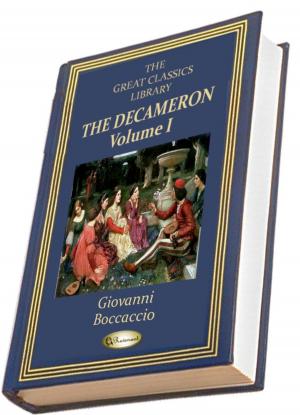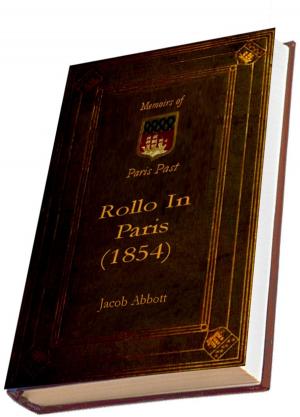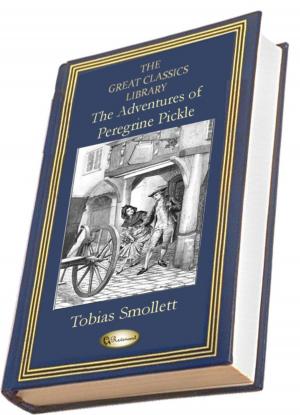| Author: | Edgar Lee Masters | ISBN: | 1230000027912 |
| Publisher: | Revenant | Publication: | October 30, 2012 |
| Imprint: | Language: | English |
| Author: | Edgar Lee Masters |
| ISBN: | 1230000027912 |
| Publisher: | Revenant |
| Publication: | October 30, 2012 |
| Imprint: | |
| Language: | English |
The Spoon River Anthology (1915), a collection of short free-form poems that collectively describe the life of the fictional small town of Spoon River, named after the real Spoon River that ran near Masters' home town. The collection includes two hundred and twelve separate characters, all providing two-hundred forty-four accounts of their lives and losses.
"It is not strange that any one reading this much exploited book, with its ambitious 'creation'—or rather, recreation —'of a whole community of personalities,' should, like Mr. William Marion Reedy, in whose paper, The Mirror, the poems originally appeared, be reminded of Balzac....the concentrated, purely psychological method, plus the austere, unemphatic style, which makes of these brief life-summaries—some tragic, some tender, some simply grotesque or terrible —so many self-epitaphs, is much more that of the Divine Comedy. Indeed, we half suspect that not only the somewhat bizarre invention, but also the grave, succinct, intense, moral tone, was derived directly from a reading of Dante.Just as the mediaeval Italian poet on his memorable stroll through the infernal regions, in Virgil's company, encounters the shades of his former fellow citizens of Florence, and listens to them as they tell the stories of their lives on earth, so Mr. Masters, eavesdropping, as it were, on the outskirts of a village cemetery, is able to report the veridic revelations of Spoon River's honoured—and dishonoured—dead. The result as, one by one, these glimmering ghosts emerge momentarily from their gloom, rehearse their ancient wrongs, or ironically read the lying descriptions on their tombstones, is the stripping stark naked of the collective moral, spiritual, and even physical life of an entire community....
While Spoon River purports to be a semi-rural farming community in our own Middle West, its precise location is of particular significance only as this has permitted the poet to study at first hand the figures which he evokes so vividly by virtue of a penetrating, almost morbid, imaginative sympathy, combined with powers of expression which, if not specifically those of the poet, reveal such general poetic qualities as even the analytical novelist himself must share if he is to be a genuine creative artist. Doubtless elsewhere there are little towns like Spoon River which, plumbed, would reveal an equal range and richness of character. Indeed, the charge most often formulated against American life as material for art, is its uniformity, its mediocrity. Hence what is really significant is that writers like Mr. Masters should at length appear to unearth and avail themselves of this native wealth, not merely in its superficially picturesque traits—our sectional story-tellers have sufficiently covered these—but in its permanent human aspects."
W. A. Bradley, The Bookman, 191
The Spoon River Anthology (1915), a collection of short free-form poems that collectively describe the life of the fictional small town of Spoon River, named after the real Spoon River that ran near Masters' home town. The collection includes two hundred and twelve separate characters, all providing two-hundred forty-four accounts of their lives and losses.
"It is not strange that any one reading this much exploited book, with its ambitious 'creation'—or rather, recreation —'of a whole community of personalities,' should, like Mr. William Marion Reedy, in whose paper, The Mirror, the poems originally appeared, be reminded of Balzac....the concentrated, purely psychological method, plus the austere, unemphatic style, which makes of these brief life-summaries—some tragic, some tender, some simply grotesque or terrible —so many self-epitaphs, is much more that of the Divine Comedy. Indeed, we half suspect that not only the somewhat bizarre invention, but also the grave, succinct, intense, moral tone, was derived directly from a reading of Dante.Just as the mediaeval Italian poet on his memorable stroll through the infernal regions, in Virgil's company, encounters the shades of his former fellow citizens of Florence, and listens to them as they tell the stories of their lives on earth, so Mr. Masters, eavesdropping, as it were, on the outskirts of a village cemetery, is able to report the veridic revelations of Spoon River's honoured—and dishonoured—dead. The result as, one by one, these glimmering ghosts emerge momentarily from their gloom, rehearse their ancient wrongs, or ironically read the lying descriptions on their tombstones, is the stripping stark naked of the collective moral, spiritual, and even physical life of an entire community....
While Spoon River purports to be a semi-rural farming community in our own Middle West, its precise location is of particular significance only as this has permitted the poet to study at first hand the figures which he evokes so vividly by virtue of a penetrating, almost morbid, imaginative sympathy, combined with powers of expression which, if not specifically those of the poet, reveal such general poetic qualities as even the analytical novelist himself must share if he is to be a genuine creative artist. Doubtless elsewhere there are little towns like Spoon River which, plumbed, would reveal an equal range and richness of character. Indeed, the charge most often formulated against American life as material for art, is its uniformity, its mediocrity. Hence what is really significant is that writers like Mr. Masters should at length appear to unearth and avail themselves of this native wealth, not merely in its superficially picturesque traits—our sectional story-tellers have sufficiently covered these—but in its permanent human aspects."
W. A. Bradley, The Bookman, 191















